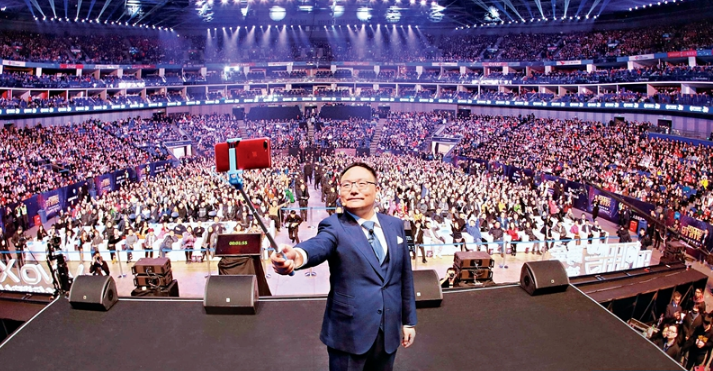Narrating 2.0 – The Boom of Audio Sharing Portals in China
China Today,May 28, 2018 Adjust font size:
Knowledge for Sale
Another strategic development direction on which the creators of Ximalaya are betting for the future is paid content.
Already today, some channels and programs have to be subscribed to for a small fee. Over the past two years, the portal has already proven that this could work out through its “123 Knowledge Day.”
Inspired by similar sales events like the popular “Black Friday” in the U.S. or Alibaba’s annual “shopping carnival” on November 11, Ximalaya staged its “123 Knowledge Day” for the first time on December 3, 2016.
The event for paid audio content brought Ximalaya a sales increase of RMB 50 million (6.4 million euros) for the premiere within only 24 hours. Thus, Ximalaya matched Alibaba’s income from the first “Shopping Carnival” in 2009.
In 2017, the “123 Knowledge Day” then achieved a turnover of RMB 196 million, almost four times that of the previous year. Half of the income went to Ximalaya, the other half was distributed to podcast creators.
All these figures underline the great economic development potential of the industry. And Ximalaya co-founder Yu Jianjun has great ambitions for the future:
“Our goal is to build a platform modeled on Alibaba’s Tmall, where providers create high-quality content for our users,” Yu said in 2017. Yu aims to become a Taobao of the media world, as it appears.
And the Chinese public seems to be readily willing to open their purses to purchase knowledge for sale. Above all, audio programs around topics like career and employment, finances, and life coaching have several million followers. Among the most popular podcast search tags in 2017 were terms such as “better life,” “prosperity” or “personal success.”
Looking more closely, the journey of the evolutionary origins of storytelling comes full circle, as even in the 21st century we seem to have the need to learn through spoken word and virtual experiences of others, in order to prepare ourselves for future difficulties and potential risks and thus gain an evolutionary advantage.
Only that today it is no longer wild animals and predators that lurk as real dangers in the undergrowth of the jungle, but have been supplanted by the fear of falling behind financially and in career growth in the concrete jungles.
In the age of infotainment, the heroes of modern times are those who have gained useful experiences and success in their domains and who share the wisdom gleaned from them with others. They inspire the audience’s imagination in their quest for self-optimization and a happier life and, at the same time, help fuel the growth of the online and offline economy.
All this ensures that the spoken word will remain very much alive in China and elsewhere in the world in 2018, and not at odds, but instead flourish even more in the digital information age.

